Support quality, independent, local journalism…that matters
From just £1 a month you can help fund our work – and use our website without adverts. Become a member today
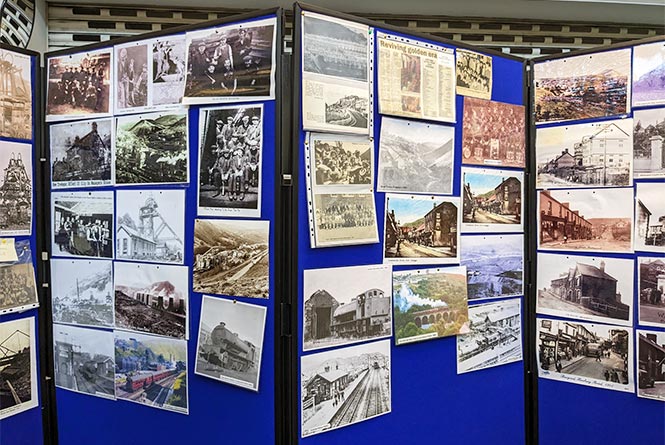
New Tredegar residents and former miners came together this month to mark 40 years since the miners’ strike.
March 12 marked four decades since the industrial action that began after then-Prime Minister Margaret Thatcher planned to close 20 pits. It lasted almost a year.
The government and National Coal Board said the pits were uneconomical but for many the dispute went further, pitting whole communities against the government and police and resulting in mass closures of mines across the country.
At the Whiterose Reource Centre, a special one-day event was held, providing a chance to remember a difficult but unifying time, which forever changed the area.
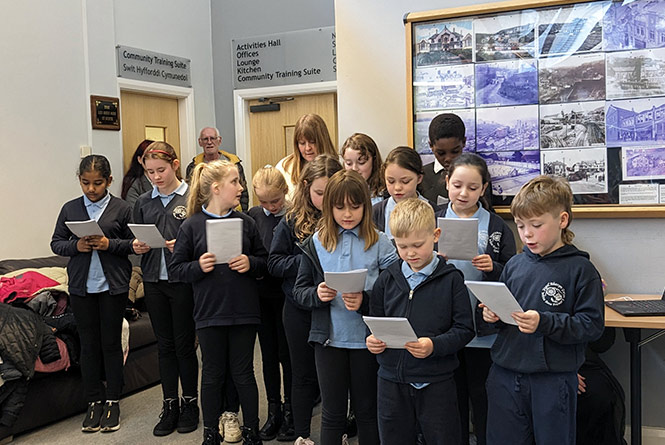
Dean Dauncey, manager of the centre, said: “Even though it was quite a desperate time for certain individuals a lot of good memories have come out of that time.
“The camaraderie, the ladies talking about making dolls because people couldn’t afford to have them. They were giving them out as Christmas gifts.”
For Dean, the community spirit needs to be recaptured. He said: “That’s something that as a community we need to get back.
“We want to put a bit of pride back.”
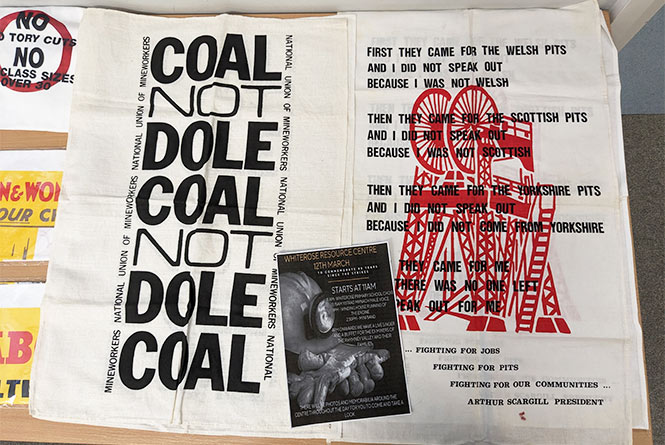
The event had been organised following a meeting with local ex-miners. It included an exhibition, performances from Whiterose Primary School and the Abertillery brass band.
Cllr Mike Adams, mayor of Caerphilly County Borough, also attended and the day ended with a buffet, live music, and a meet-up for ex-miners of the Rhymney Valley and their families.
“You just had to carry on”
One former miner who attended was David Rees, who was just 21-years-old at the time of the strike.
David, now 61, told Caerphilly Observer that being a miner was “a fantastic job” where generations worked together.
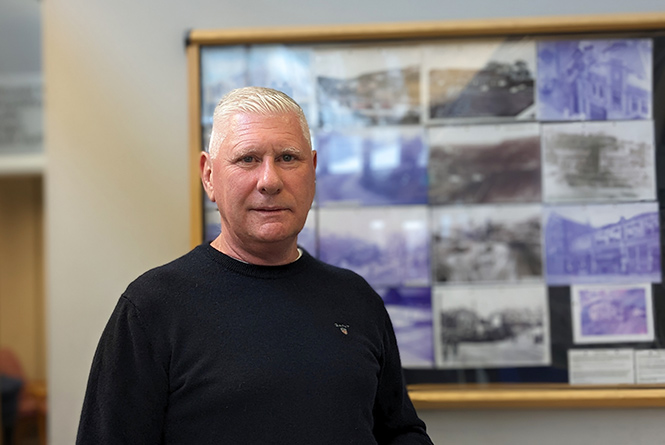
He said: “I started in 1979. Being young, you worked with people who had worked with your father, worked with your grandfather.”
David worked in Bedwas Colliery at the time of the strike, which originally voted not to join the action but was soon ‘picketed out’.
David said: “That was it. 52 weeks. No wages.”
He continued: “You just had to carry on. There were no thoughts of going back to work. It was just filling the day with other things.”
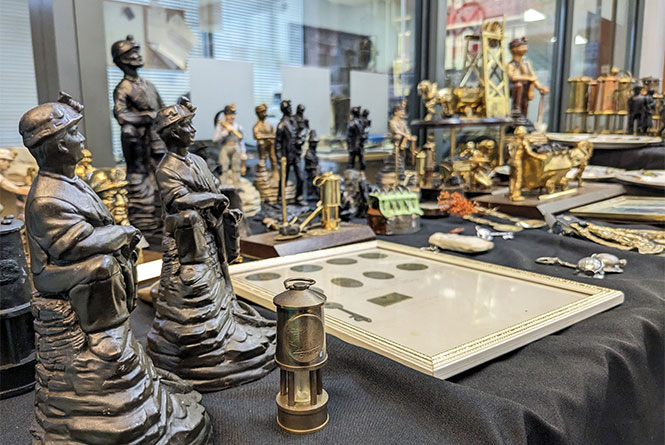
For David that included picking up painting and decorating in New Tredegar where he could. He also got £5 a week off his grandmother to help him get by.
David didn’t get involved in the strike after his father advised him to stay away from a “nasty dispute”. And though there was no work, he never considered leaving the profession.
He said: “I was in the mindset that I was a coal miner and that’s all I knew at the time.”
David said that returning to work after the strike was a “strange” and “bizarre” experience.
Ultimately, Bedwas Colliery closed and David transferred to Taff Merthyr Pit in Trelewis, where he stayed until December 1990.
“Tough times”
The strike affected not only the miners themselves but also their families.
David’s sister, now-councillor Eluned Stenner, told Caerphilly Observer that they were “tough times.”
Cllr Stenner, who is also a director of the Whiterose Resource Centre, said: “We’re here today to commemorate 40 years of the miners’ strike, which I was heavily involved in as a teenager.
“When I was 15, instead of being out on a Friday night with my friends, we would be knocking on doors collecting food to put parcels together for the striking miners.”
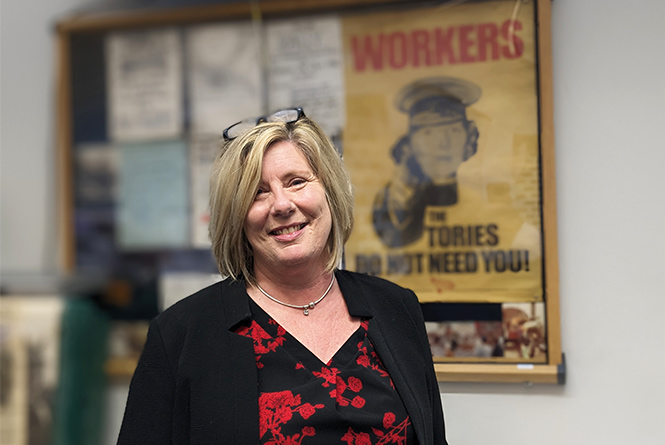
Her father, Leslie Rees, was a councillor for New Tredegar at the time and a former miner.
She added: “He was instrumental in setting up the miners’ support group in New Tredegar.”
Cllr Stenner had brought family pictures, banners and tea towels from the time, which were on display.
She added: “It needs to be commemorated, it really does.”
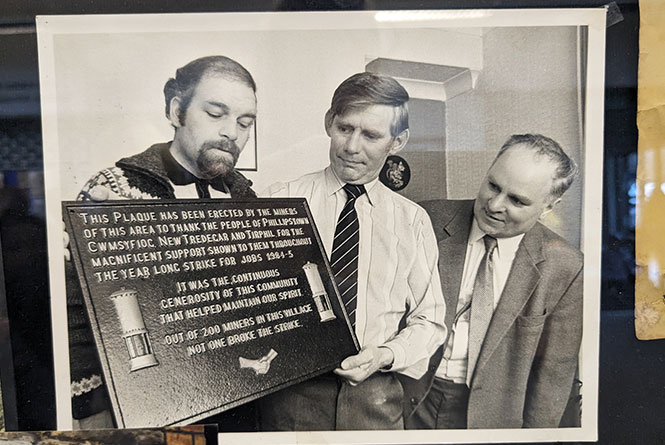
“Dusty, stinking, dirty”
While some former miners didn’t take to the streets, many were still in support of the strike – like Idris Crowley.
Idris, 89, who lives in New Tredegar, worked in the washery at Elliot Colliery until its closure in 1967. He then transferred to Ogilvie.

According to Idris, the environment was “dusty, stinking, dirty”. He said: “The best thing they ever had was the pit-head baths.”
This was where Idris’ father worked and was somewhere Mr Crowley’s niece, Sian Parfitt, visited as a small child.
Sian said: “I can remember the miners fussing me. I was only three or something like that,” adding that she has vivid memories of the coal miners being covered in soot.
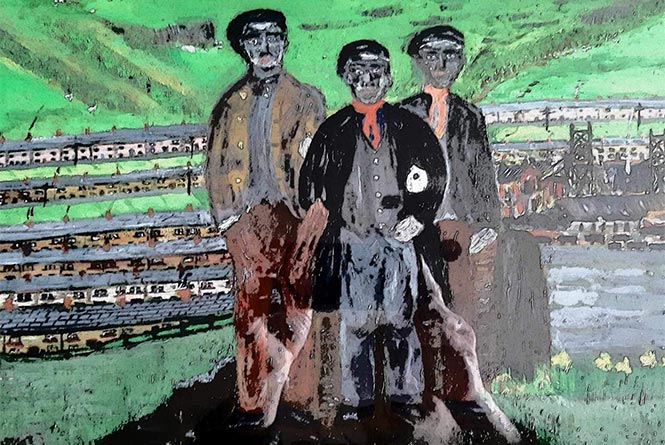
Though Mr Crowley had moved jobs before the strike began in 1984, he still supported them.
He said: “Everybody was in the same boat.”
Mr Crowley is now a keen painter and has immortalised a picture of his father TJ Crowley, who started in the mines as a young teenager.
“Getting people talking”
Ensuring the long and rich history of mining in the area continued was also a focus of the event’s organisers.
There were hard hats to try on and lots of information for local schoolchildren to learn on their visits.
Dean said: “I find that we need to bridge that gap for the kids to know what was here years ago.”

One of the most interesting facts that surfaced during the event was that Elliot Colliery sent coal to the White Star Line, which built the Titanic.
Dean said: “Little bits of information like that, we never knew before. Those bits are fantastic.”
The event was also a chance for people to “reconnect”. Dean saw two former colleagues recognise and catch up with each other after decades of not seeing each other.
Dean said: “They’d worked together 55 years ago, and all of a sudden it was like they were back in a gang again,” adding that they soon started referring to each other using the nicknames from when they were underground.
He continued: “That’s what it’s all about, sharing their experiences, getting people talking.”
Support quality, independent, local journalism…that matters
From just £1 a month you can help fund our work – and use our website without adverts.
Become a member today
